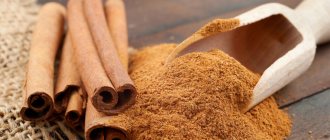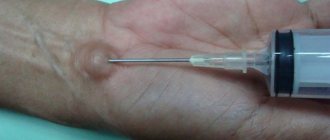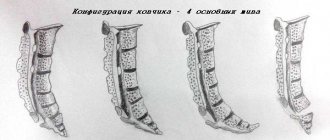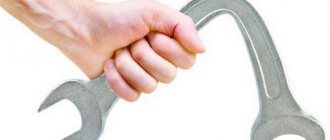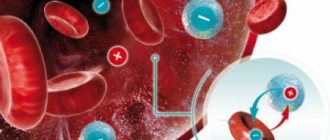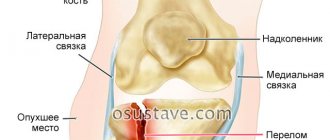Bile is a digestive secretion that is synthesized by liver cells and accumulates in the gallbladder. It is here that it is stored and acquires the composition necessary for proper digestion of food. After the bile has “reached the desired condition,” it is released into the duodenum—the digestion process is initiated.
Bile secretion has a bitter taste due to the presence of acids and salts of sodium and potassium in its composition. In addition to these substances, bile contains proteins, phospholipids, calcium and chlorine ions, as well as cholesterol. If, for various reasons, the composition of the bile secretion changes, salts precipitate - this phenomenon entails the formation of clots, flakes, sand and stones in the gallbladder.
They, in turn, clog the ducts of this organ and, in combination with spasm (caused by stress or other psycho-emotional experiences), lead to stagnation of the secretion. During the day, the liver produces at least 1 liter of bile, which creates pressure through which it enters the stomach and esophagus. It is through this process that the taste of bile appears in the mouth.
Bitterness in the mouth - what does it mean?
The main cause of a bitter taste in the mouth is the reflux of bile into the esophagus, which occurs when the liver, gallbladder and biliary tract are not functioning properly. Bile is a digestive fluid that is produced by liver cells and accumulates in the bladder. Here it is not only stored, but also “ripens” and acquires a full acid-salt composition. After “ripening,” the bile enters the duodenum, where it initiates the digestion process.
Bile secretion has a characteristic bitter taste. Healthy mature bile has a certain composition. In addition to acids and metal salts (sodium and potassium), the secretion contains proteins, phospholipids (fats for building cell membranes), cholesterol, chlorine and calcium ions.
An unbalanced composition of bile leads to the precipitation of salts. This is how clots, flakes, sand and stones form in the gallbladder. They impede the outflow of secretions, forming stagnation in the bladder and ducts. In addition, the cause of stagnation is often a spasm that accompanies stress and nervous experiences (fear, hostility, anger, hatred).
Against the background of stagnation, the release of new bile continues, which tends to enter the bladder. The human liver secretes up to 1 liter of bile secretion per day. This creates pressure, which forcefully pushes the stagnant secretion, throwing it into the stomach and esophagus.
The entry of bile into the esophagus causes a characteristic bitter taste in a person's mouth.
Why is bile stagnation dangerous?
Stagnation of bile in medical terminology is called cholestasis. How dangerous is this condition, and is it possible to ignore this symptom?
Let's list what happens in the human body during bile stagnation:
- When bile stagnates in the ducts or bladder, not enough digestive enzymes enter the duodenum. This disrupts the process of digestion and absorption of food, and also forms intestinal dysbiosis.
- Stagnation creates conditions for the appearance of stones (cholelithiasis), which further complicate the outflow of bile from the bladder and ducts.
- Stagnant secretion loses its bactericidal properties and becomes the basis for the development of pathogenic bacteria and infections.
- The periodic reflux of bile into the stomach irritates its mucous membrane, disrupts the microflora, and forms gastritis and pre-ulcerative conditions.
- The reflux of bile into the pancreatic ducts causes inflammation (pancreatitis).
- Bile suppresses the activity of worms, which means it controls their number and inhibits reproduction.
- The components of bile stimulate intestinal peristalsis, which prevents stagnation of feces.
- Bile acids ensure the absorption of fat-soluble vitamins (A, E, D, K).
- Chronic stagnation of bile forms cirrhosis of the liver.
Bitterness in the mouth in the morning or after eating occurs due to stagnant processes. They create conditions for diseases of the gastrointestinal tract. Therefore, a bitter taste is the first alarming symptom that signals the formation of pathology and the need for treatment of the liver and gastrointestinal tract.
The main causes of bitterness in the mouth
Bitterness in the mouth after eating, sleeping or physical activity appears when exposed to the following factors:
- Unbalanced diet, eating large amounts of fats, carbohydrates, foods with food additives. Too long breaks between meals, “starvation” diets.
- Alcohol, tobacco, coffee - cause spasm of the ducts.
- Inflammatory diseases in the liver (impair the secretion of bile).
- Low mobility.
- Worms in the intestines or liver (pinworms and lamblia are most often diagnosed).
- Diseases of other organs of the gastrointestinal tract (peptic ulcer, diarrhea or diarrhea, reflux or reflux of food into the esophagus).
- Poisoning (food, industrial, environmental).
Bitterness in the mouth with a healthy liver
Bitterness in the mouth can also occur with a healthy liver in the following conditions:
- Hormonal changes and disorders - occur during pregnancy, thyroid diseases, and diabetes. Mechanism of action - with hormonal imbalance, adrenaline is released into the blood, which narrows the bile ducts.
- Inflammation of the oral mucosa (periodontitis, gingivitis, stomatitis), as well as a reaction to the material of fillings and crowns.
- Side effects of a number of medications (antibiotics, choleretic agents).
- Stress - causes every muscle to contract, forms a spasm, narrows blood vessels, bile ducts, slows down the movement of blood, bile, and other fluids inside the body.
Bitterness in the mouth during pregnancy
Bitterness in the mouth during pregnancy is not considered a pathology in the absence of other painful factors.
There are several reasons for bitter sensations in the mouth:
- Hormonal changes. They happen all the time during pregnancy.
- Compression of the stomach, liver, and gall bladder by the growing baby (observed in the last two months of gestation).
- Muscle relaxation (normal during pregnancy) and weakening of the alimentary sphincter (valve), resulting in the reflux of stomach contents into the esophagus and a sour/bitter taste in the mouth.
Bitter taste while running
Why does bitterness in the mouth occur during and after physical activity? Physical movement accelerates the flow of internal fluids. Blood and lymph move faster, stagnant bile begins to flow intensively into the intestines. There is a bitter taste in the mouth.
Its appearance indicates the presence of stagnant processes, as well as the fact that bile has begun to move.
Choleretic herbs have a similar effect. They increase the outflow of bile, eliminate congestion, and thus treat inflammation of the liver, bladder and ducts.
List of common causes of bitterness in the tongue
Diagnosing yourself is a thankless task, so the list below is for informational purposes only. Only a qualified gastroenterologist can determine the exact cause of bitterness in the tongue after receiving the results of tests and examinations. Next, he will prescribe adequate treatment and prescribe the necessary dosages of specific medications. Even if it seems that a set of symptoms is present in a particular patient, and it is very easy to make an accurate diagnosis for yourself, do not delude yourself. Without tests and examination results, it is still impossible to draw a correct clinical picture.
So, why does bitterness on the tongue occur on an empty stomach, in the morning?
- Gallbladder pathologies. Usually it all starts with a violation of the outflow of bile. As a result, it can enter the stomach cavity, and from there rise up the esophagus into the oral cavity. As a result, the patient wakes up in the morning and the feeling of bitterness on the tongue haunts him until he has breakfast. After this, the bile is digested along with food. Impaired bile outflow can be caused by various factors and causes. Treatment of bitterness in the tongue in this case should be carried out with choleretic drugs.
- Violation of the outflow of bile, if left untreated, over time develops into chronic cholecystitis, and cholelithiasis may also develop. This condition leads to the patient feeling bitterness on the tongue not only occasionally, but every morning. Moreover, the discomfort becomes more and more pronounced - if left untreated, the patient begins to suffer from bile belching. Vomit may appear in the morning, on an empty stomach, and only bile mixed with gastric juice will be released. This is a very dangerous condition that requires the intervention of a qualified specialist.
- Liver pathologies, such as fatty hepatosis, hepatitis, fibrosis, can also be accompanied by a constant bitterness in the tongue. Liver pathologies almost always develop into a cirrhotic state over time, so you should not put off visiting a doctor. It is worth noting that liver diseases often go “hand in hand” with gallbladder pathologies, since these organs are located nearby - their functioning is closely interrelated. A common cause of bitterness in the tongue is a combination of liver and gallbladder diseases. Of course, as the pathology progresses, the patient begins to suffer from more pronounced symptoms - a yellow tint to the sclera and skin, indigestion, constant nausea and lack of appetite, and so on.
Causes of bitterness in the mouth and tongue, which occurs not in the morning, but after eating:
- Acid reflux is a pathology of the stomach in which, after eating food, part of the acid necessary for digestion is thrown down the esophagus into the oral cavity. In this case, the patient may feel bitterness both on the tongue and in the oral cavity as a whole. if possible, you should undergo gastroscopy and find out the exact causes of the pathology. Typically, acid reflux develops due to chronic gastritis, poor diet, or weak esophageal sphincters.
- Pregnancy, oddly enough, is also a common cause of a bitter taste on the tongue after eating or on an empty stomach. During this difficult period, the female body undergoes serious hormonal changes, as a result of which each system can begin to act up. The organs of the gastrointestinal tract are no exception. In particular, the stomach may begin to produce more acid, causing it to rise up the esophagus to the mouth. During pregnancy, chronic cholecystitis can also worsen, the flow of bile is disrupted - as a result, the patient will suffer from a pronounced bitterness in the mouth. During pregnancy, potent drugs are prohibited, so you will have to improve the flow of bile and hormonal levels in consultation with your doctor. For this purpose, you can use medicinal teas and herbal infusions.
Treatment of bitterness in the mouth depending on the causes
Various remedies help remove bitterness in the mouth. Their choice is determined by the reason that forms the bitter taste. If the reason is a disruption of the liver (its overload, poisoning, infection), then treatment should be aimed at accelerating the outflow of bile and taking care of the main filter of the human body - the liver (diet, stress control).
If the factors that form congestion are not directly related to the liver, then the specifics of treatment are chosen differently. Let's consider what to do if there is bitterness in the mouth, what drugs or traditional medicine help get rid of this symptom.
Choleretic agents for the outflow of bile
These are herbs and drugs that accelerate the flow of bile and eliminate its stagnation. These include immortelle leaves, mint, dill, corn silk, artichoke, rose hips, dandelion flowers, calendula, flax seeds, and lemon and honey. From pharmaceutical drugs - allochol, gepabene, ursosan, ursofalk, magnesium sulfate, antispasmodics.
Drugs for liver cell restoration
This group of medicines and herbs is used if the cause of bitterness is inflammatory diseases of the liver and gall bladder. This includes milk thistle seeds, burdock and dandelion roots, as well as pharmaceutical drugs - hepabene, allohol. Their periodic intake prevents the development of bitterness in those who work in hazardous industries and are daily poisoned by industrial substances. And also among alcoholics.
Normalization of motor activity
It’s not for nothing that movement is called the basis of life. All human internal fluids are constantly moving. Low mobility creates conditions for stagnation and the formation of sediment - clots and stones. Therefore, daily walks, jogging, swimming, gym classes, and active games are necessary.
Diet and proper nutrition
Dietary nutrition facilitates the work of the liver and accelerates its recovery. It also creates conditions for dispersing stagnant bile and normalizing the microflora of internal organs. When treating bitterness in the mouth, confectionery fats, baked goods and sweets, chocolate, products with preservatives (mayonnaise, ketchup, factory canned food, processed cheese, smoked meats) are excluded from the menu.
Drinking regime is also controlled. Daily water consumption should be 1.5-2 liters (depending on the time of year). This provides the body with a sufficient amount of fluid and prevents thickening and stagnation of bile.
Stress management
To ensure the outflow of bile, it is necessary to relieve muscle spasm. For this purpose, sedatives and herbal teas are used. Psychological methods of relaxation and relaxation also help (if the cause of bitterness is excessive nervous experiences).
Treatment of mucous membranes at the dentist
If the bitterness is associated with inflammation of the oral mucosa, then treatment is directed against a dental infection. Antiseptic rinses (miramistin, chlorhexidine), gels and ointments for stomatitis help stop the spread of infection and cure gum inflammation.
Treatment of bitter taste
Treatment for bitterness in the mouth is to eliminate the root cause of its occurrence. After conducting a comprehensive examination of the patient’s body, doctors can select the optimal treatment, individual in each case.
The best treatment for any disease is its prevention. Therefore, to prevent illness and unpleasant symptoms, you should lead a healthy lifestyle and undergo regular examinations in medical institutions.
How to treat gastrointestinal diseases?
Treatment of gastritis is a complex process that includes treatment with medications, adherence to a gentle diet, and the use of means that strengthen the body as a whole.
It is much easier to get a patient with an acute form of gastritis back on his feet than with a chronic one. For acute gastritis, treatment is usually limited to taking medications prescribed by a gastroenterologist:
- medications that reduce the acidity of gastric juice (Almagel, Platifillin, Rabeprazole, Gastropin, Phosphalugel);
- enveloping agents (Pancreatin, Festal, Digestal, Smecta, Panzinorm);
- antibiotics (Esomeprazole, Clarithromycin, Amoxicillin, Omeprazole, Pilorid).
With purulent gastritis, in most cases it is impossible to do without surgical intervention.
ulcer , despite the similarity of its symptoms with the symptoms of gastritis, is much more difficult to cure than gastritis. But given modern medical equipment and capabilities, 96 out of 100 cases of treatment end in success and complete recovery of the patient. In other cases, it is possible to help a person only through surgical operations.
If the disease was not caused by the presence of the Helicobacter pylori bacterium in the body, you can get rid of the disease with the help of medications. Doctors usually prescribe:
- antibiotics (“Clarithromycin”, “Amoxicillin”, “Tetracycline”, “Metronidazole”);
- antisecretory agents (Almagel, Maalox, Rhinit, Omeprazole);
- medications that restore the gastric mucosa (“Enprostil”, “Sucralfate”, “De-Nol”, “Biogastron”);
- means for improving gastric motility (“Motilium”, “Cerucal”);
- painkillers (“No-shpa”, “Drotaverine”);
- medications to restore intestinal microflora (Bifiform, Linex).
Treatment with pharmaceutical products is always accompanied by adherence to a diet until the patient fully recovers.
Stomach dyspepsia , if identified at an early stage, can be cured without serious intervention from specialists. To do this, you should follow these simple rules:
- after eating, you should walk at a moderate pace for half an hour;
- do not tighten the belts on clothing;
- do not pump up your abs;
- sleep on a high pillow to avoid the release of stomach contents into the esophagus;
- do not overeat;
- exclude from the diet foods that can cause heartburn (citrus fruits, tomatoes, etc.);
- stop smoking;
- do not drink alcoholic beverages.
If the “lazy” stomach syndrome was discovered at a later stage or provoked more serious complications, examination by specialists and drug treatment cannot be avoided. Usually for this disease the following is prescribed:
- antispasmodics (“No-shpa”, “Papaverine”);
- drugs that reduce acid levels (Omez, Ranitidine, Kvamatel);
- antacids with an enveloping effect (“Almagel”, “Phosphalugel”);
- enzyme medicines (“Mezim”, “Pancreatin”, “Creon”).
When bitterness in the mouth is caused by reflux , with a mild form of the disease you can get by with diet and regimen. In other cases, special drug treatment is prescribed:
- prokinetics (“Domperidone”, “Itopride”);
- antacids (“Almagel”, “Almagel A”);
- drugs to reduce acidity (Omeprazole).
To treat colitis (especially if it is chronic), the following drugs are used:
- antimicrobial (“Furazolidone”, “Loperamide”, “Enterofuril”, “Tetracycline”);
- antispasmodics (“No-shpa”, “Drotaverine”, “Papaverine”, “Duspatalin”, “Platifillin”);
- choleretic (“Hofitol”, “Holosas”, “Allohol”);
- enzymatic (Mezim, Panzinorm, Creon 10,000);
- B vitamins;
- nicotinic acid.
When diagnosing enteritis , medications are used that together help eliminate unpleasant symptoms and get rid of the disease:
- to eliminate flatulence (Espumizan, activated carbon);
- for removing toxins (“Carbolen”, “Enterodez”, “Filtrum-STI”, “Smecta”, “Polifepan”);
- to relieve pain and relieve spasms (“Dicetel”, “Spasmomen”, “No-shpa”, “Neobutin”, “Drotaverine”);
- to restore microflora (“Lactobacterin”, “Bifikol”, “Linex”, “Bifidumbacterin”, “Baktisubtil”);
- to normalize digestion (“Pancreatin”, “Panzinorm-Forte”, “Mezim-Forte”, “Creon”).
To combat parasites , the following means are used, the choice of which depends on the type of bacteria:
- "Vermox" is a broad-spectrum medicine that is active against roundworms, pinworms, whipworms and mixed types of infestations;
- “Dekaris” – cleanses the body of whipworms, pinworms, hookworms, tapeworms and flukes;
- “Piperazine” – helps against enterobiasis and ascariasis;
- “Helmintox” – prescribed for ascariasis, enterobiasis, hookworm;
- "Medamin" - removes roundworms, pinworms, and hookworms from the intestines.
Treatment of the biliary tract
Treatment of the gallbladder and bile ducts depends, first of all, on the causes of the disease. Pathological changes in the body are also taken into account. Treatment is prescribed by a doctor individually for each patient, but any therapy is based on the same principles.
In each case, the patient needs to follow a diet , which will reduce the load from food on the gallbladder. Fatty meats, poultry, fish and rich broths should be completely excluded from the diet. You should eat 6 times a day in small portions, and dinner should be no later than 2 hours before bedtime. Snacks and dry meals are strictly prohibited.
When treating cholecystitis, in most cases, taking antibiotics (Ampicillin, Gentamicin) is sufficient; in the presence of tumors or polyps , it is impossible to do without the intervention of a surgeon.
To restore the normal functioning of the gallbladder in case of dyskinesia , antispasmodics are prescribed (Drotaverin, No-shpa, Spazmalgon); in case of cholecystitis or tumors , enzyme agents that contain bile acids should be taken (Mezim, Pancreatin) , "Festal").
Also, with diseases of the biliary tract, do not forget about unpleasant pain . To eliminate them, Spazmalgon is usually prescribed; if there is a high temperature , Paracetamol is prescribed.
Treatment of liver diseases
Treatment of liver diseases with medications is quite effective. Even if it is not possible to restore the liver’s functionality in full, then at least its functioning increases by an order of magnitude and the person’s overall well-being significantly improves. The main drugs to help the liver are:
"Phosphogliv" . It is based on phospholipids and glycyrrhizic acid. Has anti-inflammatory and antioxidant effects. It is usually prescribed for various hepatoses of alcoholic and non-alcoholic nature, fibrosis. Can be used in the treatment of psoriasis and viral hepatitis in combination with other medications.
"Essentiale" . It is based on phospholipids. Used in the treatment of fatty degeneration, hepatitis and to prevent the recurrence of gallstones.
"Rezalut" . It belongs to the group of hepatoprotectors and contains vitamin E. It is usually prescribed to prevent liver failure, as well as for high cholesterol, fatty hepatosis, hepatitis, and toxic liver damage.
"Essliver" . The composition includes phospholipids and vitamins of group B, PP. It is intended more for prevention than for treatment of the liver, as it has a membrane-stabilizing and hepatoprotective effect.
"Heptral" . Used to treat toxic or medicinal liver damage, cholestatic conditions, alcoholic diseases, depression. The basis of the drug is ademetionine.
"Hepa-Merz" . A specific hepatoprotector that is used for hepatic encephalopathy and intoxication. It contains ornithine.
There are no universal medications for treating the liver. For effective treatment when taking any drug, you need to adhere to a diet and not drink excessive alcohol.
Folk remedies
If the feeling of a bitter taste constantly bothers you, you can use folk remedies that have proven their effectiveness in practice.
Such recipes only eliminate the symptom of bitterness in the mouth, but not its root cause. Before using them, you should definitely consult your doctor.
Here are some examples of recipes to get rid of an unpleasant symptom:
- Brew 2 teaspoons of pre-ground flax seeds in 200 ml of boiling water. After a few hours, the liquid will acquire a jelly-like consistency. Should be taken for 5 days, 100 ml daily.
- Brew 1 teaspoon of chamomile in 1 cup of boiling water. You need to drink a glass of this decoction every day.
- Take 1 tablespoon of pureed lemon pulp with honey and olive oil half an hour before meals. The product helps not only eliminate bitterness in the mouth, but also prevent plaque on the tongue.
- Brew 1 tablespoon of corn silk in 1 cup of boiling water. You should drink 4 times a day, 0.25 glasses for a month.
- Heat the pureed horseradish with milk in a ratio of 1:10 and leave for 15-20 minutes in a thermos. Take 3 sips before meals for 3 days.
How to get rid of bitterness in the mouth during pregnancy?
When carrying a child, it is unlikely that a woman will be able to get rid of the bitter taste completely, except perhaps to reduce these sensations. First, you need to exclude spicy, fried, fatty foods, chocolate, and spices from your diet. It is better to replace coffee and tea with herbal infusions.
After eating, you need to walk in the fresh air, and rest and go to bed only after 1-2 hours. You should eat more often, but in smaller portions. Clothing should be loose and does not constrict the stomach.
Also, if you feel bitterness in your mouth, you can chew chewing gum, which will increase salivation and, as a result, neutralize the acid.
Juices, such as potato juice, help eliminate the unpleasant feeling. You can also prepare a drink from 200 g of carrots, 150 g of celery and 60 g of parsley. It is recommended to drink it 3 times a day. Some expectant mothers help cope with bitterness in the mouth with water and a small amount of soda.
Before using any folk remedies during pregnancy, it is imperative to consult a gynecologist.
https://youtu.be/f6NNVNgchSg
Will allohol help with bitterness in the mouth?
Allochol is a drug that has been used to treat the liver for 50 years. Just 20 years ago, it was the main pharmaceutical remedy for liver restoration. This domestic medicine has a very affordable price. It contains plant and animal components.
Their complex action ensures the following:
- Dry bile - used in various treatment recipes, restores the liver even in chronic alcoholics.
- Garlic is an antimicrobial, anti-inflammatory agent.
- Nettle leaves are a supplier of vitamins, microelements, chlorophyll, and also a choleretic agent.
- Activated carbon - as a sorbent to remove toxins that are formed during any stagnation.
How does allohol work:
- Stimulates the formation of bile, accelerates its movement through the ducts.
- Prevents the formation of bile clots and stones.
- Limits and reduces the area of inflammation.
- Improves liver function.
Thus, allochol is used to treat cholecystitis, gallbladder dyskinesia and bitterness in the mouth.
Bitterness can be treated with pharmaceutical preparations or traditional medicine (mineral water, herbs). Timely treatment of the liver and gallbladder prevents further development of the disease and the formation of complications.
Treatment and prevention
Content:
Bitterness in the mouth is a symptom of many diseases, ranging from minor ones to malfunctions of internal systems. On the other hand, unpleasant sensations can be caused by food consumed previously. To understand how to get rid of bitterness in the mouth, let’s consider the possible causes of its occurrence and treatment options.
Diagnostic methods
If an unpleasant feeling constantly haunts a person, he needs to think about visiting a doctor, because such regularity is suspicious and means serious violations.
Basic diagnostic procedures for studying the digestive system:
- collecting information for anamnesis with a list of all medications taken by the patient;
- general clinical analysis of blood, urine and feces;
- biochemical laboratory blood testing to assess the functioning of internal organs;
- blood sampling to determine antibodies to herpes and hepatitis;
- cholescintigraphy and gastroscopy;
- a study to determine the average level of acidity of the stomach contents;
- tests for liver enzymes, gastrin and sugar;
- Ultrasound of internal organs.
Examinations of endocrine organs may also be carried out, tests for the presence of parasitic lesions, diseases of the genitourinary system, if there is a suspicion that the root cause lies in these areas.
With such a phenomenon as bitterness in the mouth, the causes and treatment are determined precisely through diagnosis, but it is desirable that it be timely.
Reasons for the appearance of bitterness
A bitter taste on the tongue indicates changes in the functioning of the body. A common cause of its appearance is malfunction of the gallbladder. Excess bile enters the esophagus, causing discomfort. A doctor will be able to make a diagnosis, it will be based on a complete picture of symptoms. Possible:
- Bitterness before breakfast indicates problems with the gallbladder and liver.
- The appearance of a taste after any meal signals a malfunction of the stomach and intestines.
- With a constant feeling of bitterness, independent of food intake, they talk about cancer, cholelithiasis and cholecystitis.
- The symptom is accompanied by pain in the area under the right rib; it appears after physical exertion - the liver is checked.
- Short-term bitterness when the body is overloaded indicates a stressful situation, the need to relieve mental and nervous tension.
- The appearance of discomfort in combination with halitosis signals dental diseases.
- With age, many people experience dysgeusia, changes in taste buds, and familiar foods may seem bitter.
Bitterness can appear after eating fatty or spicy foods or drinking too much alcohol. Some medications that affect the liver cause a bitter taste. These include antibiotics, antihistamines and antifungal medications. Most pregnant women encounter the problem after the 20th week. This is due to hormonal changes.
There are a huge number of reasons, we will look at some of them. After all, adequate treatment is impossible without determining the cause.
Bitterness and accompanying symptoms
What to do if bitterness in the mouth is accompanied by other symptoms? You should definitely tell your doctor about this.
When, in addition to bitterness, pain occurs in the right side, this may indicate cholecystitis or other liver diseases. The pain may be constant or occur only after intense physical exertion.
Bitterness in the mouth in the morning and a yellow coating are a sign of diseases of the biliary tract, impaired liver function, exacerbation of peptic ulcers, gastritis, cholecystitis. If the yellow plaque has a greenish tint, and the feeling of bitterness increases significantly after eating fatty foods, you should check the bile ducts, gallbladder and liver for pathologies.
A white coating on the tongue indicates a violation of the microflora of the oral cavity, dental problems, or an allergic reaction to medications and materials used during prosthetics.
An unpleasant odor, bitterness, a gray-white coating, heartburn - these are all signs of problems such as peptic ulcers, dyspeptic disorders, gastritis. A thick white coating indicates thrush and problems with the immune system. The accumulation of brown plaque in the area of the root of the tongue is typical for heavy smokers with intestinal intoxication and iron deficiency in the body.
Accompanying bitterness with nausea means problems of the gastrointestinal tract, such as:
- Nastroesophageal reflux disease.
- Eating too heavy, poorly digestible food.
- Viral hepatitis, gastric dyspepsia, gastric ulcer, biliary dyskinesia.
- Poisoning. Poisoning with heavy metals (lead, cadmium, cobalt, mercury, manganese, copper) can occur not only with food, but also through clothing, household chemicals, and water.
If, in addition to the appearance of a bitter taste, a person complains of constipation or too frequent loose stools, decreased appetite, increased gas formation, sleep disturbances, it is worth examining the intestines and ruling out the possibility of allergies. If measures are not taken in time, the patient's condition may worsen significantly.
Chills, fever, heaviness in the abdomen, hot palms and feet, feeling dry - all this indicates inflammation of the gallbladder or cholecystitis.
Gallbladder diseases
Almost 1 liter passes through the human body per day. bile, when the gallbladder is not functioning properly, the ducts are poorly patency, stagnation of bile secretion occurs. A bitter taste appears in the mouth, the intestines receive an insufficient amount of digestive enzyme, disruptions in its functioning and dysbiosis begin. In advanced cases, the patient's eyeballs turn yellow, long-term stagnation of secretions can cause gastritis, ulcers, pancreatitis, and with chronic stagnation, cirrhosis of the liver is formed.
Symptoms
You can recognize that the appearance of bitterness in the mouth is associated with the gallbladder by the following signs:
- The problem occurs in the morning or after eating.
- A light green or light yellow coating appears on the tongue.
- The esophagus and oral mucosa are irritated.
- The skin and whites of the eyes turn yellow.
If stagnation of bile has caused the formation of stones in the ducts, then the pain will be antispasmodic in nature, and in the right hypochondrium the patient will feel a feeling of fullness, discomfort when turning and bending.
Important! Only a doctor can make a diagnosis; if you notice the listed symptoms, contact a gastroenterologist.
What causes a bitter taste in the mouth?
The taste of bitterness appears for various reasons. This is an integral symptom of pathological processes in the abdominal cavity and an unhealthy lifestyle. Bitterness torments continuously or appears spontaneously after a heavy meal or exercise. A bitter taste on the tongue is often accompanied by additional symptoms. Only an individual approach to different manifestations of bitterness will help to understand the reasons for this phenomenon.
Bitterness in the mouth may indicate serious illness
Treatment for stagnation of bile secretion
There are different causes of congestion, and treatment will vary. If there is a malfunction of the liver, the doctor prescribes drugs to accelerate the outflow of bile, and the drug must be gentle on the filtering organ. Additionally, the doctor will prescribe a diet.
In other cases, the doctor will focus on the specifics of each patient and prescribe choleretic drugs of different groups:
- Cholekinetics: drugs that reduce the tone of the bile ducts and increase the tone of the gallbladder.
- Cholespasmolytics: medications that reduce bladder tone.
Treatment for liver diseases
If the main filtering organ fails, it needs to be helped to recover. The pharmacy sells synthetic and herbal products that help normalize liver function.
Important! If you work in hazardous industries or have problems with alcohol abuse, taking them will help prevent the occurrence of organ dysfunction.
Popular drugs include:
- Essentiale N.
- Allohol.
- Gepabene.
- Burdock roots.
- Dandelion roots.
- Milk thistle.
Additionally, ways to cope with stagnation are increasing physical activity and diet. All processes in the body accelerate after physical activity; walking, running, and swimming will improve your health.
It is important to follow the principles of proper nutrition; fatty, rich foods, preservatives (mayonnaise, smoked sausages, processed cheeses) are excluded from the menu. You should eat in small portions, fractionally. It is recommended that the number of meals per day be 4-6 times. The daily volume of water is at least 1.5 liters. in a day.
Important! Nervous tension causes muscle spasm, which prevents bile from fully passing through the pathways. The doctor will prescribe soothing teas and herbs. Use various relaxation techniques on your own.
Reason: antibiotics
Antibiotics are a risk factor, causing bitterness in those patients who already had liver problems. Medicines of this type are powerful “artillery”; while they have a positive effect during the treatment of diseases, they create a large burden on the body.
A distinctive feature of antibiotics is that their metabolism occurs predominantly in the liver, creating a colossal load for it. Treatment will consist of maintaining the functionality of the filtering organ and helping to restore it.
Dental problems
If diseases such as caries, pulpitis, stomatitis, gingivitis and others are not treated in a timely manner, inflammatory processes occur on the mucous membrane, bad breath appears, the composition of saliva changes, and the microflora of the oral cavity is disrupted. As a result, you may feel bitter.
To solve the problem, first of all, establish oral care; it should be comprehensive. Brushing your teeth twice a day, remember the rules of good care, 3-5 minutes for brushing each row of teeth. In the evening, additionally use dental floss, choose a mouthwash that suits you, you can use it after every meal. If you are concerned about gum sensitivity, bleeding, loose teeth, or discomfort while eating, contact your dentist immediately.
Acid reflux as a cause of bitter taste on the tongue
Gastroesophageal reflux is a normal physiological phenomenon. Usually it occurs immediately after eating, does not cause discomfort and occurs with low frequency, expressed in belching and a small release of acid into the esophageal cavity. However, if the bitterness at the root of the tongue manifests itself strongly, if the belching after eating is also bitter, you should undergo gastroscopy and find out the exact diagnosis. Most likely, the patient will have acid reflux.
Causes of this disease:
- weakness of the esophageal sphincters (can be either congenital or acquired);
- obesity;
- diaphragmatic hernia;
- smoking;
- gastritis of various etiologies;
- violation of the outflow of bile;
- alcohol abuse;
- bronchial asthma and some other chronic diseases;
- late stages of pregnancy.
Depending on the cause of the disease, a conclusion should be made about changing your lifestyle. You need to give up bad habits, normalize your diet - this is most often the treatment. The bitterness in the tongue will go away, and the patient will feel better and digestion will improve. In parallel with getting rid of the pathology, performance will increase, and the patient will be able to lead an active lifestyle.
Bitterness in the mouth in pregnant women
Carrying a child is a test and stress for the whole body. During this period, a new fetus grows inside the woman and needs space. The load and pressure on the spine and internal organs increases, including the child putting pressure on the organs of the gastrointestinal tract.
The second aspect, pregnancy is a time when a woman’s hormonal background changes greatly, this can correct taste preferences and distort the functioning of receptors. In this case, treatment is not required, you need to be patient, after the birth everything will quickly fall into place.
Advice! The only thing a pregnant woman can do to help herself is to exclude from her diet foods that give her a bitter aftertaste.
General recommendations
Whatever the reason for the appearance of the aftertaste, the best thing to do is to adjust your diet, because the right diet will be beneficial for the liver, stomach, intestines and the entire body as a whole.
- Drink at least 1.2 - 2 liters. clean water a day. In this case, it is better to avoid drinking tea and coffee. These drinks should be replaced with herbal infusions that will help relieve discomfort. Decoctions of mint and lemon balm, rose hips, hawthorn and strawberries will be an excellent alternative.
- In case of any malfunctions in the functioning of the gastrointestinal tract, it is necessary to avoid salty, spicy, smoked and fatty foods. Limit fried and sweet foods. The daily diet should contain no more than 3-4 grams. salt, you should eat in small portions. Eating every 3 hours is ideal.
- Include healthy foods in your menu that will help tone the entire body and have a positive effect on the gastrointestinal tract. These include: prunes, grapes, apricots, figs, blueberries and strawberries, cabbage, beets, zucchini, tomatoes, bran and cereals will also have a positive effect on the digestive system. Include fermented milk products in your diet daily.
Important! Diet can be an additional or preventive measure, but is not a complete treatment.
ethnoscience
It is necessary to understand that bitterness in the mouth is a symptom, the treatment of which is not the treatment of the root cause. For dental problems or a taste after eating, local treatment can help, but in situations where the basis for bitterness is diseases of the internal organs, these methods are additional therapy.
- Kissel from flax seeds. 1 tbsp. l. Grind the seeds and brew in a glass of boiling water. Close the container with the mixture tightly and let it brew. During the day, the entire glass must be drunk; this is done in several doses; the course of treatment is 1 week. The product is aimed at normalizing the functioning of the digestive system.
- Infusion of chamomile or calendula. The selected dried flower is brewed in 200 ml of boiling water. accounts for 10 grams of flower. The decoction is infused and drunk after meals, the procedure is repeated 3 times a day, each time the product must be fresh. Flowers have anti-inflammatory and sedative effects.
- Unrefined, cold-pressed oil can remove bitterness. A spoonful of oil should be kept in your mouth for 10 minutes, after rinsing, spit out the product, and rinse your mouth with a weak solution of potassium permanganate.
- Decoctions of mint, thyme or lemon balm have a beneficial effect on the condition of the oral cavity. Additionally, you will get fresh breath and healthy gums.
- Dry cloves will mask the bitterness; chew one inflorescence; the spice will eliminate the taste and smell from your mouth. Citrus fruits have a similar effect; a slice of any fruit must be sucked and spat out; the method is not suitable for those who suffer from ulcers and gastritis.
- In the past, pureed horseradish was often used to remove bitterness. The root vegetable was grated, diluted with milk in a ratio of 1:10, the mixture was heated, poured into a thermos and left to infuse. The prepared mixture was taken 3 sips before meals for 3 days.
- The cause of the taste is food - take a course of activated charcoal. It won't harm your body, but it will reduce the impact of chemicals found in large amounts of food you eat. The standard dosage is 1 tablet per 10 kg of weight; for preventive use, the dose can be reduced.
- With the permission of the treating specialist, you can treat with aloe vera juice, the drug is taken twice a day.
Consider herbs as part of a comprehensive treatment, you will quickly feel positive dynamics.
Treatment
If bitterness occurs in the mouth, only a qualified doctor should determine the causes and prescribe a course of treatment. But you can also help yourself with the help of diet, traditional and folk remedies.
Often, bitterness in the mouth is only a symptom of more serious diseases, so it is necessary to strive to cure specific diseases. Sometimes, in addition to medications to treat the main problem, treatment for bitterness in the mouth is prescribed - tablets or drops that stimulate the removal of bile from the body (Allohol), as well as sorbents.
Traditional medicine offers many ways to remove bitterness in the mouth. It is recommended to constantly drink a lot of clean water (from 2 to 3 liters per day), freshly squeezed juices, vegetable decoctions of carrots, celery, parsley, fresh juices from citrus fruits and berries are useful.
The following remedies can be prepared at home:
- 1 tsp. Add dried chamomile flowers to a glass of boiling water and leave for 20 minutes. Strain the infusion and drink. Daily dose - 1 glass.
- 1 tbsp. l. pour 250 ml of corn silk. boiling water, bring to a boil, turn off the heat and leave to steep for a couple of hours. Drink 4 glasses throughout the day.
- 1 tbsp. l. pour flax seeds with water (1 cup), put on fire and boil until jelly-like. The finished broth must be filtered, cooled and drunk. Take a glass in the morning and evening.
- Grated horseradish is poured with milk at the rate of 1 part horseradish to 10 parts liquid. The resulting composition is heated in a water bath and left for at least half an hour. Stand, strain, drink 5 times a day, 1 tbsp. l. The bitterness in the mouth should go away quite quickly, after 4 days.
You can treat bitterness in your mouth with the following vegetable juices:
- From carrots . Carrots contain a lot of pectins, which help good intestinal function and cleanse the body, bioflavonoids, which protect the liver, beta-carotene (promote the production of vitamins), phytoncides (normalize the gastrointestinal microflora).
- From cucumber . Due to the content of a large amount of water and nutrients, this vegetable effectively normalizes the intestinal microflora and improves well-being.
- From beets . The complex of organic substances and minerals contained in beets has a beneficial effect on the liver and bile ducts. To improve the taste, beet juice can be mixed with carrot juice.
- From potatoes . The bitterness caused by stomach problems will go away if you drink a course of potato juice, rich in starch, fiber, organic acids, minerals, and proteins.
If the feeling of bitterness in the mouth is accompanied by a yellow, white or brownish coating on the tongue, it is necessary to clear this coating using one of the available methods:
- Lemon . Lemon juice is an effective means of combating pathogenic bacteria and inflammatory diseases in the mouth. For rinsing, the juice is diluted with water; for lotions, you can use it in its pure form.
- Soda . Soda crystals are very good at cleaning the surface of the tongue from plaque. A cotton pad or thick swab should be moistened in water, then in soda and wiped on the tongue. 2-3 such procedures per day are enough.
- Toothpaste . Many toothbrushes on the reverse side have a special tongue cleaning brush that can be used to clean your tongue during each brushing of your teeth, that is, 2 times a day. Movements should be directed from the root to the tip of the tongue.
- Salt water or herbal decoctions . Decoctions of oak bark, chamomile, sage, and other medicinal plants, like saline solution, have antiseptic and antibacterial properties. Rinsing throughout the day with this mixture will remove accumulated plaque and prevent new plaque from forming.
Juice therapy
Another method of self-medication aimed at improving the functioning of the entire digestive system, normalizing microflora and generally increasing the tone of the body. Drinking natural juices has a positive effect on many health factors; the following vegetable drinks are most effective in combating bitterness:
- Carrots: its juice improves intestinal function and cleanses it. Phytoncides restore microflora, rid the body of various types of parasites, bioflavonoids have a beneficial effect on the liver. Additionally, the drink contains a large amount of vitamins and minerals.
- Beetroot juice has long been used to cleanse the body of waste and toxins. The pectins in its composition stop the processes of decay, betaine has a beneficial effect on the liver, and prevents the deposition of fat cells on the tissues of internal organs. Doctors often prescribe beet juice for additional treatment of liver and biliary tract diseases.
- Cucumber is rarely considered as a raw material for juice; the fruit contains a huge amount of water, but this does not prevent it from containing a complex of vitamins and minerals that restore balance in the body. The juice is quickly absorbed, has a very low calorie content, and a large percentage of water in the composition “flushes” the body, cleansing the intestines of toxins.
Advice! Some experts recommend creating mixes of three juices; preliminary consultation with a therapist is advisable.
Juices from parsley, potatoes or lemon are used for rinsing. Drinks increase salivation, the microflora of the mucous membrane is restored, parasitic microorganisms are “washed away” from the walls of the oral cavity.
From all of the above, there is only 1 conclusion: to eliminate the problem, it is important to determine the cause. Don’t forget, the appearance of discomfort is the first sign of a malfunction in the body; timely help will allow you to stay healthy; if a long-lasting bitter taste appears in your mouth, be sure to consult a doctor.
Causes of bitterness in the mouth - video
Bitterness in the mouth is a clear sign of bile reflux . For some reason, bile is thrown into the stomach and esophagus, which should not normally happen.
Tablets will help get rid of bitterness for a while, but these measures are not enough.
It is necessary to find out if there are problems with the digestive tract that need to be diagnosed and treated.
A common cause of bitterness in the oral cavity is cholelithiasis - a complex disease that cannot be ignored.
Useful video
From this video you will learn how and how to treat bitterness in the mouth:
All these drugs are not recommended to be taken without prior consultation with your doctor .
First you need to establish why you feel bitterness in your mouth, and then start taking any pills. An incorrectly prescribed medication can make the condition that is bothering you worse.
If you systematically suffer from heartburn, digestive disorders, feel pain in the liver or pancreas, or complain of a bitter taste in your mouth, then be sure to get diagnosed.
And then you should undergo a full course of treatment for the disease that is detected.
What pills are prescribed?
Keep in mind! To eliminate the bitter taste, it is necessary to normalize the functioning of the digestive system, liver and gall bladder.
Before complications arise in the form of cholelithiasis , the problem can be solved with the help of drug therapy . What medicines can a doctor prescribe for bitterness?
Allohol
Allochol is an inexpensive but effective drug that is used in the treatment of chronic hepatitis, cholecystitis and digestive disorders.
This is a completely natural medicine based on activated carbon, extracts of dry bile, garlic and nettle.
The medicine improves the processing of fats, supports the functioning of the digestive organs, and normalizes the production of bile.
Allochol is taken one tablet 3 times a day after meals. The course of treatment lasts 4 weeks.
You should know! Omez is a medicine based on omeprazole, prescribed together with Allochol.
The drug eliminates the hypersecretion of hydrochloric acid by the parietal cells of the stomach, thus reducing the likelihood of gastric juice reflux into the esophagus.
The tablets relieve bitterness in the mouth, heartburn, and destroy Helicobacter pylori bacteria, protecting the digestive system from ulcers .
You need to take the medicine 2 times a day, one tablet half an hour before meals.
A course of treatment is prescribed from 2 to 8 weeks.
Holosas
Holosas is a dietary supplement used as a source of nutrients that help optimize the functioning of the liver, gall bladder and the entire digestive tract.
The tablets contain extracts of medicinal herbs - rose hips, milk thistle, artichoke.
For your information! The drug normalizes metabolic processes, has a diuretic and choleretic effect, protects the liver from toxins and harmful effects.
Take 1-2 tablets 3 times a day, half an hour before meals.
Gepabene
Gepabene is another homeopathic remedy that contains extracts of fumaria and spotted milk thistle.
The drug is prescribed for diseases of the liver and bile ducts , as well as to eliminate acute digestive disorders.
Active components protect liver cells from destruction, reduce cholesterol levels, and help break down proteins and lipids .
The tablets are taken in a dosage of 1 capsule 3 times a day after meals. For severe reflux, it is recommended to take one additional capsule before bed.
Liobil
It is worth noting! Liobil is a remedy for protecting and restoring the liver, which has a choleretic effect.
The drug normalizes the secretion and outflow of bile, activates the pancreas, helps break down and absorb lipids, and enhances intestinal motility .
Prescribed for inflammation of the liver, gall bladder and pancreas.
The drug is taken 1-2 tablets 3 times a day immediately after meals.
The standard course of therapy is 1-2 months.
Fosphonziale
Phosphonciale is a powerful hepatoprotector, contains essential phospholipids and silymarin.
Quickly eliminates symptoms of dysfunction of the hepatobiliary system, such as bitterness in the mouth, pain under the right hypochondrium, and indigestion.
Relieves inflammation, helps the liver get rid of toxins , normalizes the production and concentration of bile.
Know! The medicine should be taken with meals, 2 capsules 3 times a day. Treatment lasts about a month, if necessary, the course of therapy is extended.
Hofitol
Chophytol is a homeopathic medicine based on field artichoke extract.
The leaves of this plant contain cynarin, phenolic acids, carotene, vitamins B1, B2, ascorbic acid, and inulin.
The medicine helps normalize metabolic processes, exhibits a diuretic, choleretic and hepatoprotective effect .
The standard dosage is 2 tablets 3 times a day before meals for two to three weeks.
Contraindicated in the presence of gallstones - in this case, choleretic drugs cannot be taken.
Odeston
Important! Odeston is a drug based on hymecromone, has a choleretic and antispasmodic effect.
The active components normalize the functioning of the bile ducts and pyloric sphincter.
In this case, the medicine does not affect the peristalsis of the digestive organs.
The tablets not only relieve bitterness in the mouth, but also eliminate nausea and vomiting, and normalize appetite.
The recommended dosage is 200-400 mg 2-3 times a day 30 minutes before meals.
The drug needs to be taken for only 2 weeks.
Causes
Bitterness in the mouth can bother a person at different times and for many reasons. It is caused by certain groups of diseases, bad habits, pregnancy and other factors. In fact, there are many reasons for the appearance of a bitter taste. Let's take a closer look at the main causes of bitter taste in the mouth.
Gastrointestinal diseases
This is perhaps the most common cause of bitterness in the mouth. It is caused by the following gastrointestinal ailments:
- Gastroesophageal reflux . With this disease, the contents of the stomach can enter the esophagus, which causes unpleasant taste sensations, including bitterness. Other symptoms of reflux include:
- nausea;
- bloating;
- heartburn;
- chest pain;
- Shortness of breath and cough are possible when lying down.
- Stomach dyspepsia . Due to disturbances in the functioning of the stomach, the level of acidity in it rises. With dyspepsia, a person feels fullness in the stomach even after a small amount of food, heaviness, nausea, bloating, and bitterness in the mouth in the morning.
- Presence of parasites in the stomach . Giardia and other bacteria attach to the intestinal walls and injure it, which provokes disturbances in the metabolism of fats and carbohydrates. A bitter taste appears in the mouth, and a person becomes sensitive to foods that have never caused allergies or other disorders.
- Colitis . This disease is characterized by:
- flatulence;
- bloating;
- heaviness in the stomach;
- false urge to defecate;
- stool disorders;
- pain in the stomach;
- bitterness in the mouth;
- rumbling in the stomach several hours after eating;
- a rash may appear.
- Gastritis . With gastritis, the composition of gastric juice changes significantly, which leads to a deterioration in the absorption of vitamins, proteins, fats and poor removal of toxins from the body. A characteristic sign is the appearance on the tongue, except for the tip, of a white-gray dense coating that cannot be cleaned off. There is also an unpleasant odor and bitterness in the mouth, bloating, heartburn, and belching.
- Ulcer . The symptoms are very similar to those of gastritis, but peptic ulcer disease is much more difficult to treat. There is also a gray-white coating on the tongue, which is almost impossible to remove, heartburn, bitterness in the mouth, and headaches.
- Enteritis . Usually this disease is severe, but passes quickly (depending on the causes). The main symptoms are:
- bloating;
- coating on the tongue;
- headache;
- temperature rise to 39 degrees;
- general weakness and lethargy;
- nausea;
- vomit;
- periodic pain in the stomach;
- loose stools up to 20 times a day;
- rumbling in the stomach;
- dry mouth and weight loss are possible.
Liver diseases
These may be hepatitis , Botkin's disease , steatosis , cirrhosis and other less common diseases.
All these diseases are characterized by:
- bitterness in the mouth;
- increased temperature;
- nausea;
- vomiting;
- sleep disorders;
- general lethargy and weakness of the body;
- heaviness in the stomach;
- periodic pain in the right side;
- increased susceptibility to colds as a result of a weakened immune system.
It is impossible to determine exactly what ailment is bothering you without a comprehensive diagnosis and examination by a doctor.
Gallbladder ailments
There are a huge number of diseases of the gallbladder and biliary tract. It’s almost impossible to mention each one, so let’s look at the most serious and common ones.
The first of these diseases is cholecystitis , which develops as a result of cholelithiasis. The only symptoms worth paying attention to are heaviness in the right hypochondrium after eating, a bitter taste, nausea and vomiting.
The second disease in this group is biliary dyskinesia . The signs are similar to the symptoms of cholecystitis, but in this case, flatulence, belching, and sometimes constipation are added, and the pain in the right hypochondrium is not sharp, but dull aching.
Another cause of bitterness in the mouth can be gallbladder cancer . It is accompanied by nausea and vomiting, constant pain in the right side does not go away with the help of medications, jaundice appears in 75% of cases, and a dense, tuberous formation appears in the area of the gallbladder, which is easy to palpate independently.
Dental problems
appears in the mouth after dental procedures and is accompanied by toothache, the cause may lie in periodontitis, gingivitis , stomatitis , periodontal disease , mechanical damage to the gums or periodontal tissues. Also, a bitter taste may appear due to poor-quality fillings or allergies to denture materials.
Diabetes
If the cause of bitterness in the mouth is an increase in the level of glucose in the blood, then along with it the person’s vision deteriorates, sweating decreases, palms and feet “burn,” dizziness and periodic headaches appear. Only blood tests for blood sugar levels can confirm or refute the presence of the disease.
Hormonal disorders
Bitterness in the mouth may appear due to malfunctions of the thyroid gland. There is an increased or decreased release of thyroid hormones, and the person is in a state of hyperthyroidism or hypothyroidism.
The amount of adrenaline and norepinephrine also increases, which, in turn, affects the functioning of the gallbladder and can provoke spasms of the bile ducts. Bitterness in the mouth in this case occurs due to stagnation of bile.
Pregnancy
When carrying a child, a woman’s body undergoes a radical restructuring of all processes. Bitterness in the mouth can be a consequence of the following changes:
- food digestion slows down significantly;
- bile and hydrochloric acid can flow from the stomach into the esophagus, since the valve between the duodenum, stomach and esophagus does not close tightly enough;
- the muscles of the internal organs, including the uterus and gastrointestinal tract, relax due to an increase in progesterone levels, which causes disturbances in taste perception.
Other reasons
Taking antibiotics. Some drugs have side effects that may include a bitter taste in the mouth after eating. They often destroy the natural microflora, reduce the number of lactobacilli, and provoke dysbacteriosis.
The same effect, in addition to antibiotics, can be caused by medicinal herbs and remedies, for example, St. John's wort or sea buckthorn oil.
Specific food. If a person eats a lot of fatty foods, mushrooms, spicy and smoked foods, he may feel bitterness in his mouth from time to time. The same effect is caused by excessive consumption of coffee, tea on an empty stomach, sweets, tomatoes, and citrus fruits.
Bad habits. A bitter taste may remain after smoking a cigarette or drinking alcohol on an empty stomach. It can also be present when a person quits smoking.
Stress. Nervous system disorders can cause lack of appetite. Accordingly, this affects the production of bile, and a bitter taste appears in the mouth.
Bitter taste in the morning
If you always wake up with a feeling of a bitter taste in your mouth, but then during the day it does not bother you, the reason may lie in the following ailments:
- caries;
- periodontal diseases;
- drinking alcohol;
- eating garlic or pepper;
- coffee abuse;
- reflux;
- nasal congestion;
- sinusitis;
- sore throat.
Bitter taste after eating
If a bitter taste appears during or after eating, this is most likely an individual intolerance to certain foods or their excessive consumption.
Bitterness may occur if the day before you ate garlic, onions, very fatty, smoked, bitter or spicy foods. Citrus fruits, legumes, some vegetables, sweets, and pine nuts can also affect taste.
In this case, there is no need to worry, but if you have any additional symptoms, you should consult a doctor.
Bitterness in a child's mouth
Often, bitterness in a child’s mouth occurs for the same reasons as in adults. According to statistics, problems with the biliary tract are most often found in children, and cholecystitis or other inflammatory hepatobiliary diseases are much less common.
In young children, a bitter taste may appear due to food intoxication or due to dyes getting into the mouth (sometimes toys are coated with low-quality dyes that contain lead).
Another fairly common reason is the presence of parasites in the body . Thus, bitterness in the mouth can be a sign of echinococcosis, ascariasis, opisthorchiasis, giardiasis, toxocariasis, etc. All these diseases have similar symptoms. Their manifestations, in addition to a bitter taste during or after a cough, are:
- abdominal pain after fatty foods;
- chills;
- increased sweating;
- constipation or diarrhea;
- decreased appetite;
- weight loss.
